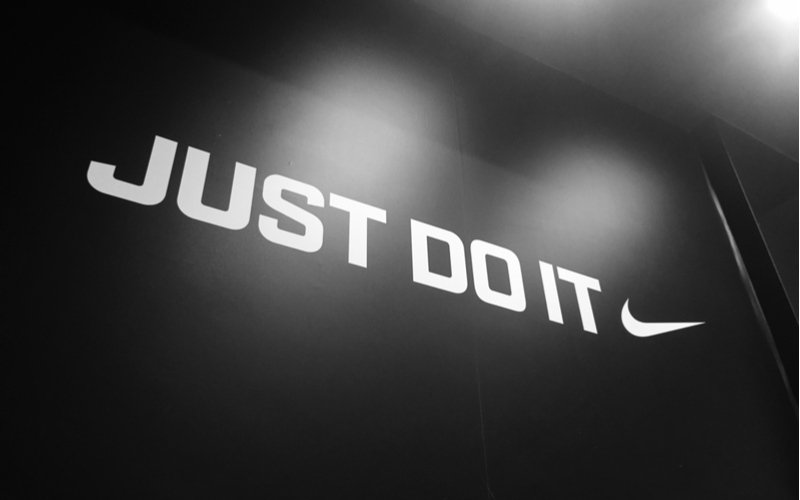Kaepernick’s Cause Means Something to the Market
Colin Kaepernick is no stranger to controversy. But despite the now years long fight to be allowed to protest institutionalized police brutality, the former San Francisco 49ers quarterback is once again under scrutiny. The difference is that now, he’s being criticized for using the private market to make his case.
After igniting a national debate for kneeling while the U.S. national anthem played before the start of an NFL game in 2016, Kaepernick first opted out of renewing his contract with the 49ers to become a free agent. At the time, it was clear that the criticism he suffered for using the NFL platform to protest would have prompted the team to let him go if he hadn’t voluntarily removed himself from the roster. But after making himself available for other teams, he alleges NFL teams conspired against him, making a pact not to hire him in his prime because of his political views.
After a long period he continued existing in the media as an activist, Kaepernick accepted a Nike offer to become the face of the company’s now legendary “Just Do It” marketing campaign.
On Labor Day, Nike dropped the announcement and Kaepernick shared the 30th anniversary campaign on Twitter, with Nike’s retweeting it. But the exciting news didn’t cheer many customers who also took to the micro-blogging site to threaten to boycott the footwear and apparel company, tweeting images of themselves ripping or cutting the Nike logo off their own clothes.
You might observe that this is the free market’s way to co-opt the anti-racist movement on behalf of capitalist profits. But maybe that’s not a criticism. Maybe that’s a way to get the message out and make it more culturally prescient.
Despite negative feedback, countless others celebrated Nike’s decision, with athletes, former pro-athletes, Hollywood stars, and politicians supporting the campaign. And as sports marketing experts told reporters, the consensus is that the timing of this campaign, right at the start of a new NFL season, will help the company reap a great deal of attention (and cash).
So while President Donald Trump supporters are more likely to boycott Nike, the company, which is the NFL’s official apparel sponsor through 2028, is betting on Kaepernick’s powerful message, even as he sues the NFL for collusion. Nike knows its market and customer base.
And as his suit heads to trial, Nike risks being further entangled in a very public fight involving the organization it sponsors, the NFL, and its campaign star. In the end, it doesn’t matter who wins, because the ongoing polemic will continue to do only one thing: To bring attention to Kaepernick’s cause.
And if that was the goal, he played his cards marvelously well.
Fighting Racism
By definition, institutionalized racism exists from years, sometimes decades of government-backed policies that, in practice, impact or hurt people of color. As Harvard Politics explains, when it comes to police brutality, looking at individual police officers’ biases isn’t enough to explain why police brutality often impacts blacks and Latinos more than whites. Instead, “the real source of anti-black bias in other places may be of a systemic or institutional origin,” the report states.
In the United States, the government has a long history of implementing policies that were either explicitly racist or that in practice ended up hurting blacks and the poor more generally. While Democratic-backed laws in the South known as Jim Crow laws may come to mind, think of the minimum wage, for instance.
In America, the first strong proponents of setting a federal minimum wage standard were the northern state unions. They knew that raising wages would hurt lower-wage competition from the south, who were, you guessed it, black.
At the time, northern U.S. Senator John F. Kennedy, the then-soon-to-be president, passionately defended the racist policy during a 1957 hearing on increasing the minimum wage making an explicitly biased point while at it.
“Of course, having on the market a rather large source of cheap labor depresses wages outside of that group, too — the wages of the white worker who has to compete,” he explained. “And when an employer can substitute a colored worker at a lower wage — and there are, as you pointed out, these hundreds of thousands looking for decent work — it affects the whole wage structure of an area, doesn’t it?”
The same happens when it comes to law enforcement.
In the 1970s, when President Richard Nixon allegedly found that fighting a drug war would help him fight his sworn enemies, namely the anti-war hippies and blacks, police were given yet another reason to make racial-profiling their most beloved policy.
In no time, the black community had become the target of massive police brutality.
Neill Franklin, an African-American former Baltimore Police Department officer, said that even when he was on duty, he would target people of color thanks to the drug war.
“When I’d see a young black male in a particular neighborhood, or his pants were sagging a little bit, or he walked a certain way,” he told reporters, “my first thoughts were, ‘Oh, I wonder if he’s selling drugs.’”
Knowing the Audience
So when Kaepernick kneels down or stands proud for a Nike ad encouraging people to keep on fighting for what they believe in, he may not be using the right’s preferred method of political protest. Nevertheless, he’s speaking to a growing and willing audience.
Police brutality in 2018 is no longer a problem that only affects people of color, it has now become everyone’s responsibility, in part because we now understand that it comes from a history of government-backed racism.
With Nike betting on winning big by using Kaepernick as the face of their “Just Do It” campaign, we’re witnessing the free market at play, giving customers the chance to choose what causes they want to see their favorite brand supporting. And Nike can profit while doing so. Think of it: when was the last time this brand got this much attention?
Kneeling or not, Kaepernick helped an entire generation stand against what they perceive as institutionalized racism, and it’s now up to Nike’s customers to make it clear, even in the face of boycott from a portion of the population.











